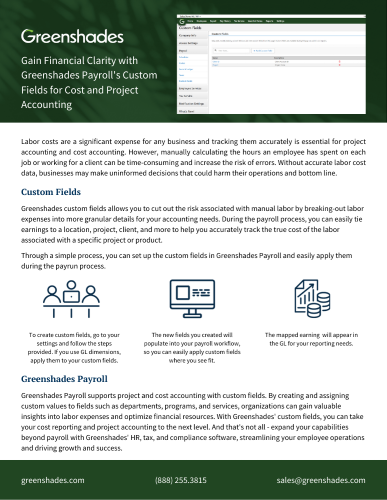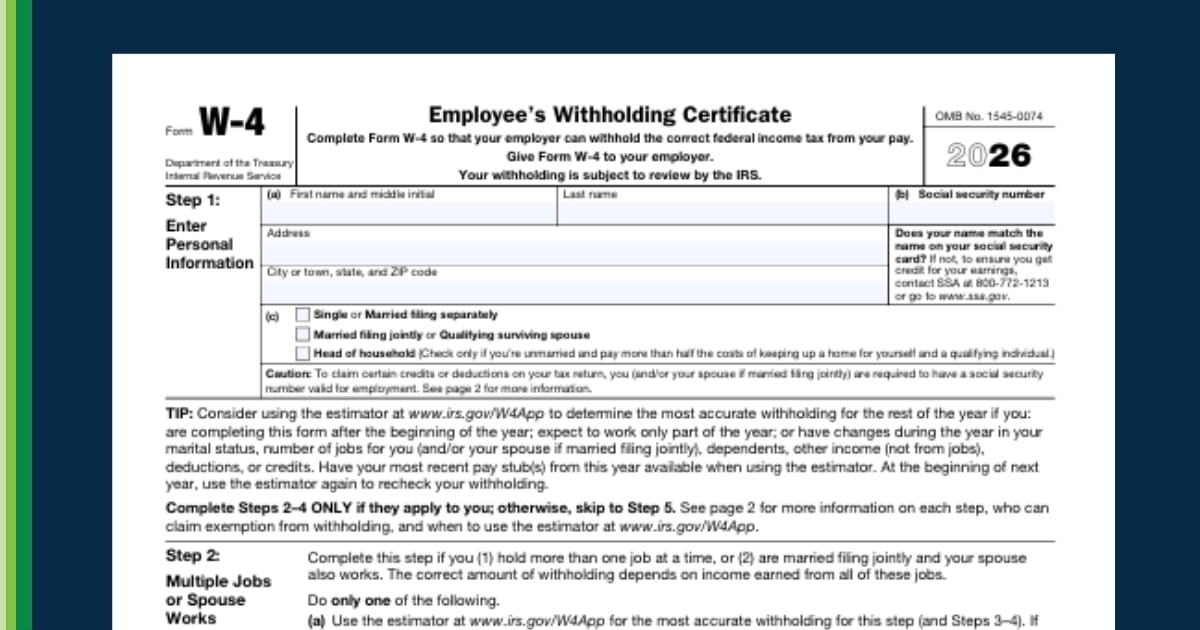Project accounting is utilized by businesses of all sizes to analyze the finances of their operational projects. The process involves identifying the costs, expenses, and financial benefits of a specific project, whether it's currently ongoing or completed. Businesses use this information for multiple purposes, such as conducting a cost/benefit analysis and planning for similar future projects.
The overall goal of project accounting is to increase efficiency and productivity in project management. In the following sections, we will take a closer look at how project accounting works and why it may be beneficial to implement the practice within your business.
Why is Project Accounting important?
Project accounting offers several advantages to help you manage resources, create accurate budgets, and much more. Here are several reasons why project accounting is helpful:
- Resource management: By analyzing the expenses and budget of a specific project, project accounting helps businesses manage their resources effectively. This includes managing labor costs, equipment, materials, and more.
- Budgeting and forecasting: Project accounting provides a detailed view of a project's finances, allowing businesses to create accurate and realistic budgets and forecasts for current and future projects.
- Optimized project management: With real-time financial updates on a project's progress and status, businesses can identify potential issues that could hinder a project’s success. By breaking down expenses into cost codes, project accounting facilitates easy reporting and helps teams make necessary adjustments and improvements.
- Determining scope: Businesses use project accounting to determine the scope of a project and accurately calculate billing estimates for clients.
- Improving overall financial management: By providing detailed insights into a project's financials, project accounting can help businesses improve their overall financial management practices. This includes identifying areas where costs can be reduced, optimizing resource allocation, and ensuring that projects are profitable.
Project Accounting vs. Financial Accounting
Project accounting is a granular level process that breaks out your expenses by individual project and provides a detailed look into the associated finances. It's different from your normal financial accounting practices, which look at your organization as a whole.
The defined time periods for project and financial accounting are different. Project accounting focuses on a project completed or planned for a specified period, while financial accounting provides an overview of an organization's financials over a longer period.
For reporting, financial accounting adheres to generally accepted accounting principles. In project accounting, reporting is tailored to the project's deliverables. For example, you may drill down to the costs associated with materials or labor depending on your team’s goals.
Lastly, project accounting allows businesses to customize their approach, so you can tailor your project accounting systems to what works best for your business. Financial accounting is regulated by FASB’s accounting standards.
Cost Codes – A Key Element of Project Accounting
In project accounting, your team will examine various financial elements such as the budget, direct costs, overhead costs, and revenue. To facilitate this process, cost codes are utilized to identify each item and ensure that your expenses are consistent across the organization.
Establishing standardized cost codes at an organizational level enables you to monitor and evaluate expenses within each project and prepares you for cost-comparison analyses across projects. For instance, your organization might establish criteria for calculating and determining labor costs associated with each project. During project accounting, those labor expenses would be assigned to a specific cost code. This way, your team can compare labor costs across projects and gain valuable insights for decision-making.
Applications of Project Accounting
Although project accounting is most used in industries where projects are the primary focus, such as construction and engineering, businesses of all sizes and in all sectors can benefit from implementing project accounting practices. Here are some examples how specific industries can utilize project accounting:
- Construction: Managing costs, tracking expenses, and monitoring progress are crucial aspects of every building project. Project accounting facilitates these objectives by breaking down expenses into cost codes for easy reporting. Moreover, companies frequently seek to compare building projects, and project accounting can provide valuable data to aid in such comparisons.
- Staffing: Project accounting is a vital tool for staffing companies that undertake various projects for multiple clients. It enables these companies to accurately track labor costs and generate precise invoices, ensuring efficient billing. By providing comprehensive reporting on time and expenses, project accounting makes it easier to manage costs and resources effectively.
- Nonprofit: Managing grant-funded projects requires high attention to detail, particularly in expense management and labor cost tracking. Project accounting plays a crucial role in helping nonprofit organizations manage these aspects effectively, allowing them to provide accurate reports to grantors and ensure compliance with grant requirements.
Project accounting is an effective tool for businesses of all sizes to efficiently manage their projects. It provides a granular level of detail that helps identify costs, expenses, and financial benefits of each project, so you are able to make more informed decisions for future projects. By understanding the benefits of project accounting and the key elements involved, businesses can improve their financial management and project efficiency.
Project Accounting with Greenshades
Labor costs are a critical point of data for project and cost accounting. Manually calculating the hours an employee has spent on each job or working for a client is time-consuming and increases the risk of miscalculating expenses.
Greenshades Payroll supports project accounting with custom fields. This method gives Greenshades Payroll clients the ability to break-out labor expenses into more granular details for accounting needs. During the payroll process, easily tie earnings to a location, project, client, and more to accurately track the true cost of the labor associated with a specific project.
Enjoy peace of mind with a simple workflow to review every detail of your pay run. Greenshades achieves accuracy with its payroll wizard - and it doesn't stop there. Get a demo today to see how you can expand your capabilities beyond payroll with the Greenshades Payroll, HR, and Tax solution.
Download More Information about Greenshades Payroll’s Custom Fields for Project and Cost Accounting




























